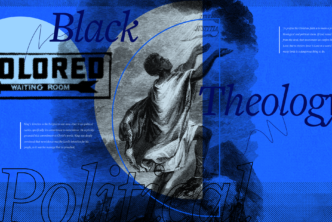Lemuel Haynes was a patriot in the American Revolutionary War but also the first African American man to be ordained as a minister. May We Meet in the Heavenly World: The Piety of Lemuel Haynes includes both a biographical essay and selections from Lemuel Haynes’ writings, revealing an Edwardsian sense of spirituality that constantly lived in view of eternity.
Well acquainted with difficulties, suffering, and death, Haynes’ ministry was infused with unfailing hope, as we see in the following excerpt.
***
The word “hypocrite” signifies a stage player, who exhibits a character not his own. God, the great searcher of hearts, sees all this and cannot be deceived; therefore, love without deceit is that alone that is acceptable in the sight of God.
Whatever names we assume, whatever services we perform, whatever zeal we manifest, it is all mockery in the sight of the Almighty, without sincerity of heart. ’Tis a stench in his nostrils and no more acceptable than if we slew a man, cut off a dog’s neck, offered swine’s blood, or blessed an idol (Isa. 66:3).
Love with dissimulation is commonly of no use to society, but often very detrimental. A dissembler is one proud of applause, will advertise himself for office, [and will] dazzle the public mind with high pretenses, like aspiring Absalom (2 Samuel 15). . . . Such are not commonly men of the first abilities, who thrust themselves forward into places that do not belong to them, while men of modesty, talents, and integrity are kept back. As long as matters are congenial, or coincide with their private and selfish views, they may in a degree keep within bounds; but when they go contrary, they will sacrifice a state—yea, a world—to avarice and ambition.
Such devotees to applause and hypocrisy will, even when the destinies of their country are at stake, be to a commonwealth what an Arnold was to American freedom, or Robespierre to a French Republic. This shows the propriety of the sacred mandate in the text: “Let love be without dissimulation” (Rom 12:9, added).
Mere pretenses to religion can afford us no real enjoyment or satisfaction.
The selfish man, or dissembler, has to war with his own conscience; his obedience is forced and unnatural. It is with difficulty that he can conceal his own true character and exhibit another that he hates. [He] is awkward, liable to mistakes; [he] is afraid that others will see the cheat; he is not at home. He is jealous of his neighbor, lest he should have the preeminence and rob him of his stolen goods. He cannot rejoice in the general good; [he] is peevish and fretful under divine government, neither is the love of God or man shed abroad in his heart.
He will meet an awful reward at the day of judgment.
Such shall have their portion with the hypocrites, who are the most natural firebrands of hell (Matt. 24:51). Then will the secrets of men be disclosed; they will be stripped of their garb and appear in their own. There will be no aping before the tribunal of Christ: it will be fully and publicly known who are, and who are not, friends to God . . . who are, and who are not, benevolent societies; whether the wars, tumults, and contentions among men are the fruits of benevolent affection; whether the great political noise and bluster among statesmen and others were the genuine effect of love to God and one another.
That our love be without dissimulation appears to be of the highest importance.
***
This post is adapted from May We Meet in the Heavenly World: The Piety of Lemuel Haynes.
The headings and title of this post are the additions of the editor. The author’s views do not necessarily represent those of Faithlife.






